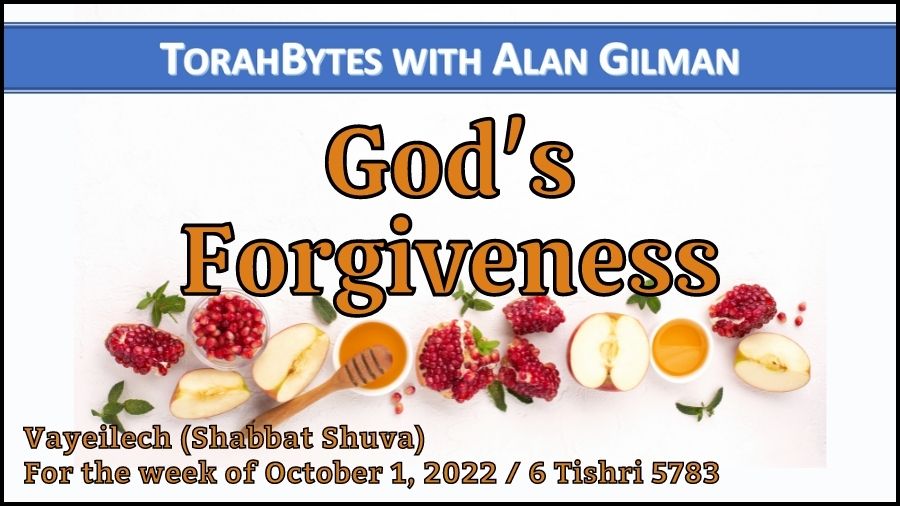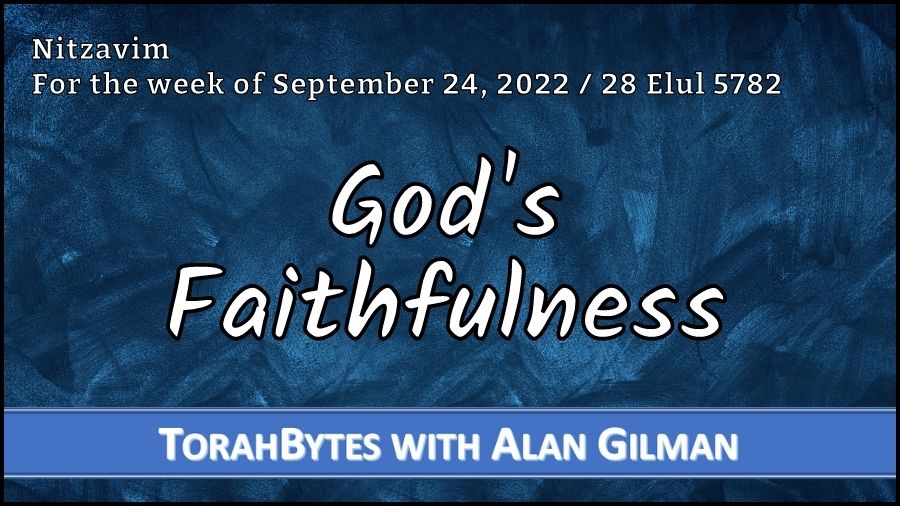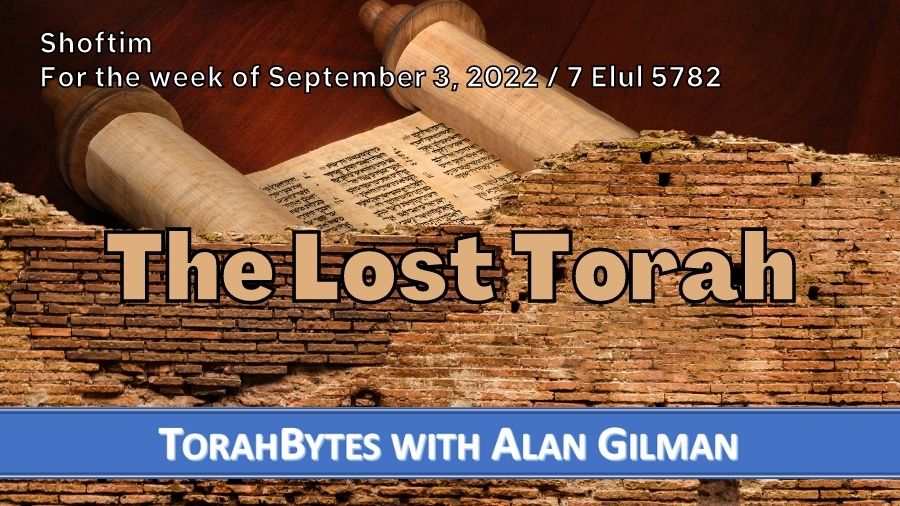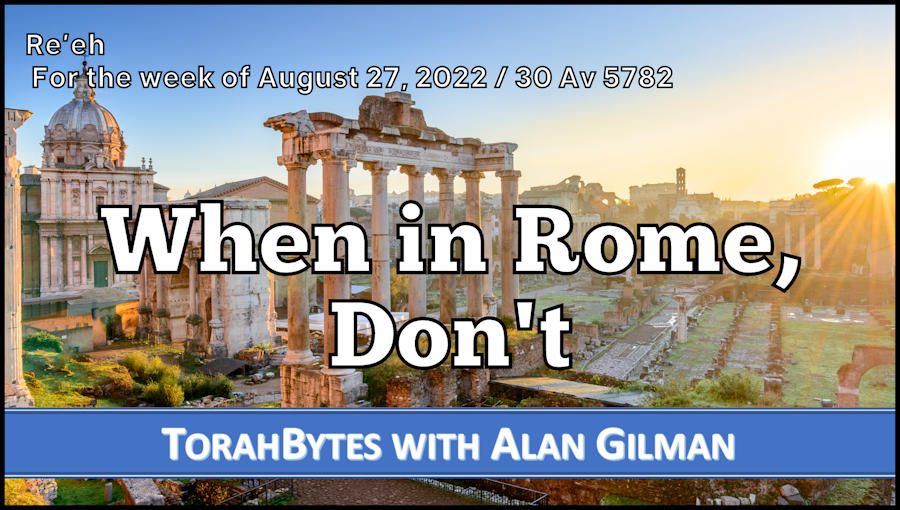For the week of October 8, 2022 / 13 Tishri 5783
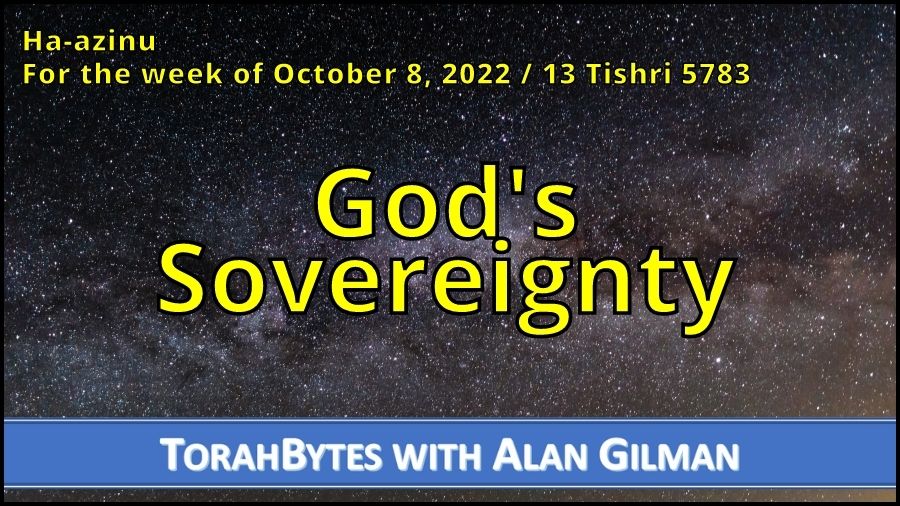
Ha-azinu
Torah: D’varim/Deuteronomy 32:1-52
Haftarah: 2 Shmuel/2 Samuel 22:1-51
Revised version, originally posted the week of September 26, 2009 / 8 Tishri 5770
Download Audio [Right click link to download]
See now that I, even I, am he, and there is no god beside me; I kill and I make alive; I wound and I heal; and there is none that can deliver out of my hand. (D’varim/Deuteronomy 32:39)
I struggle sometimes with the concept of God’s sovereignty—if God is in control of life as the Torah teaches, how in control is he? I am not looking for philosophical conclusions as much as biblical ones, since I accept that the Scriptures are God’s accurate revelation of himself and of life. From my study of the Scriptures throughout the years, I have discovered that God reveals his many-faceted truth without necessarily providing how its complexities work together. God is in no way obliged to satisfy our intellects. Rather, through the Scriptures, he has graciously provided us with everything we need in order to live life the way he intended. This includes the command to seek him as to how we are to apply his Word to our lives. This is why we need to work hard at understanding what the Scriptures say and grow in the wisdom of how to live lives firmly based on its teaching.
Therefore, struggling over what the Scriptures teach about God’s sovereignty and what it means for our lives is not a waste of time. Far from it! It is easy to claim to believe the Bible, but if we don’t take the time to grapple with what it is saying, it is doubtful whether we have really allowed its teaching access to our hearts and minds.
This year, this parsha (weekly Torah reading portion) is read the week of Yom Kippur (the Day of Atonement). This is a time of introspection, of spiritual housecleaning so to speak. From time to time, it’s a good idea to purposely examine ourselves to make sure that we are truly in the faith and that we are right with God and with others. As we do, we then need to make whatever necessary adjustments are appropriate.
The issue of God’s sovereignty is most relevant to this period of introspection, for it deals with a concept we may call primary cause. If God is truly sovereign, then he is ultimately responsible for everything that happens. Since we don’t normally deal directly with God but rather with others, both animate and inanimate, then if God is sovereign, it is his decisions that are ultimately behind everything that happens through these secondary causes. How God works through secondary causes is not something the Bible clarifies for us. Yet as we read in our verse, even though life doesn’t always seem to be in God’s control, it is. A great many questions arise from this, but whether or not there are answers to those questions, that God is sovereign is clear. To believe anything less is to reject God as he is revealed in the Scriptures. If how you comfort your heart and mind over this subject in any way diminishes this truth, you have diminished God himself. Taking the time to examine ourselves to make sure that we are right with God and others is a useless exercise if we don’t accept God for who he is. If God is not really the Master of the Universe, as is recited in countless traditional Hebrew blessings and prayers, then we will not know what adjustments to make or how to make them. Diminishing God’s rule over the universe to anything less than all-powerful exalts other forces to places of authority that God never assigned to them.
On the other hand, if we could accept God’s own statement as spoken through Moses that life, death, danger, and restoration are exclusively in his control, then our focus can be fixed firmly on God, the primary cause of everything that happens to us. Once we accept that God is ultimately in control of everything, then not only can we learn to relate to him as we ought, but how we relate to others will also begin to fall into place.
Scriptures taken from the English Standard Version
